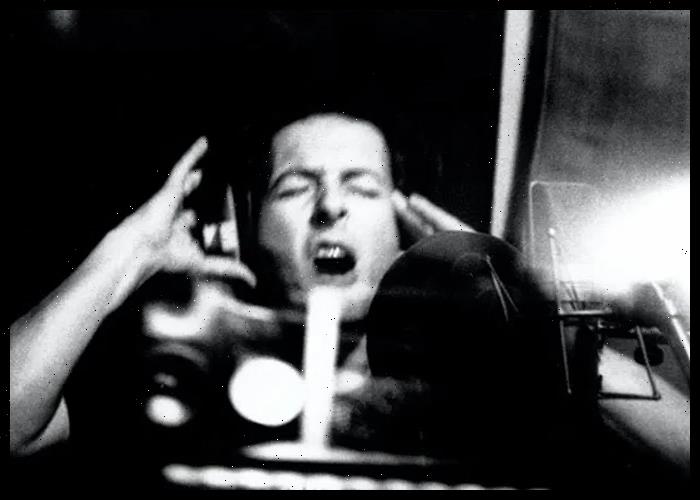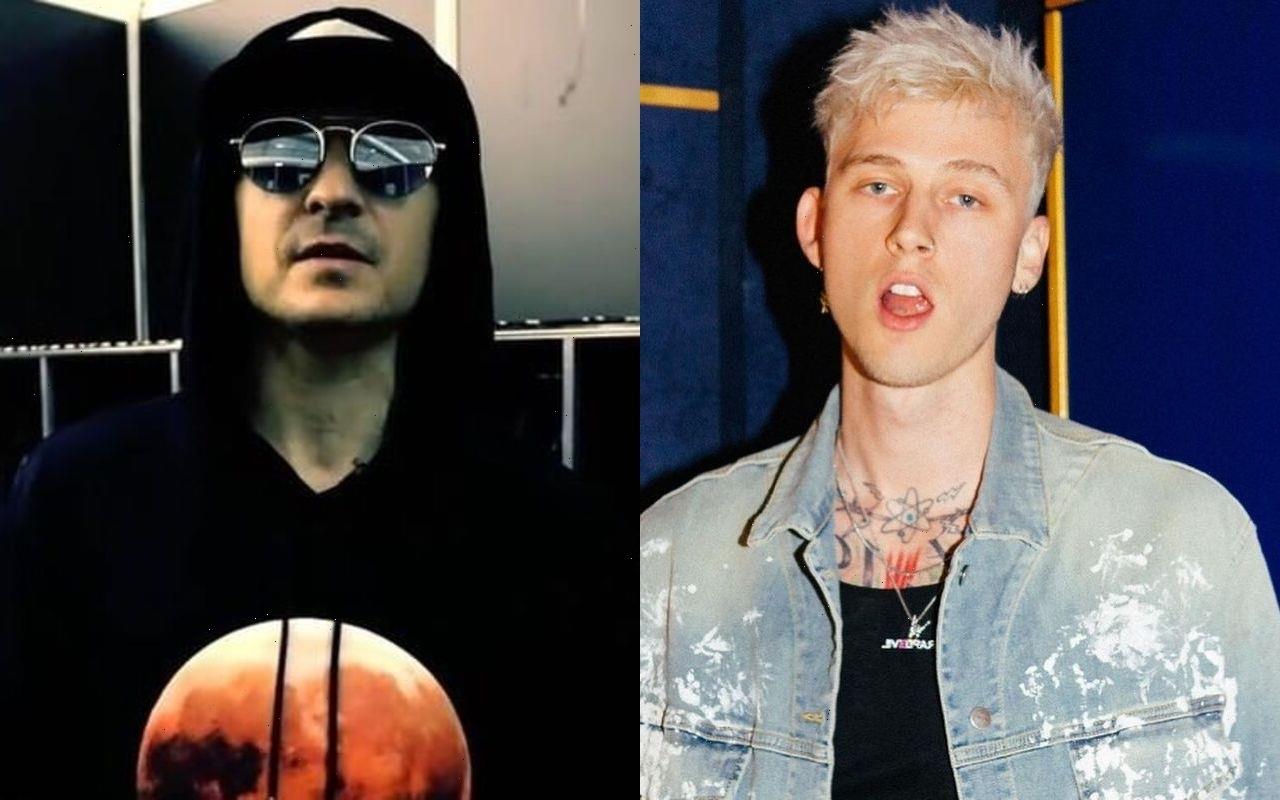Ohana Festival is California’s coolest music festival, literally, and there’s a case to be made for the figurative usage too. Eddie Vedder’s annual beachside gathering takes place yards away from the Doheny State Park cove where he learned to surf, and steady breezes over the weekend provided waves for dozens of surfers on one side of the chain-link fence and end-of-summer mellowness for about 15,000 concertgoers on the other. The festival doesn’t just have ocean draft to recommend it; there were rock squalls from Jack White, pop lungpower from Pink, whatever additional currents were caused by Stevie Nicks’ flowing garments… and, further down the bill, an honestly eclectic lineup that was like a continual 13-mph breath of fresh air.
For the sixth Ohana Fest, there was nearly an additional headliner not listed on the bill, if only in spirit: Tom Petty, who, on or around the fifth anniversary of his death, was a frequently invoked (and covered) presence. “It’s turning into Tom-fest this weekend, and I couldn’t be happier about it,” Vedder said during his own headlining set on the middle night, Saturday, as he welcomed Heartbreaker Mike Campbell to join him on guitar for a couple of Petty favorites, “The Waiting” and “Face in the Crowd.”

The previous night, Nicks had headlined, and instead of guitarist Waddy Wachtel taking the duet part on the Petty-penned “Stop Draggin’ My Heart Around” as he normally would on tour, Vedder stepped out as a surprise guest to join the sometimes-Fleetwood-Mac singer for the 1981 smash she and Petty shared.
There was plenty more TP to go around during the three-day weekend, as on Sunday, the actual anniversary of the death, Grouplove contributed a cover of “Wildflowers” midway through its set, with co-lead singer Hannah Hooper holding up a sign with the simple quotation “You belong.”
The greatest concentration of Petty, however, came in a Saturday afternoon set by Campbell’s Dirty Knobs, in which the former Heartbreakers guitarist assumed his longtime partner’s lead vocal duties on three songs — “Even the Losers,” “Runnin’ Down a Dream” and “Fault Lines.” As it turns out, Campbell sounds as much like Petty when he’s singing those oldies as he does in everyday speech. (Either it’s a case of musicians sounding more alike as they get older, just like married couples are said to begin looking alike, or there was just something linguistic in the Florida water.)
https://youtube.com/watch?v=CdFmV6eM-K8%3Fversion%3D3%26%23038%3Brel%3D1%26%23038%3Bshowsearch%3D0%26%23038%3Bshowinfo%3D1%26%23038%3Biv_load_policy%3D1%26%23038%3Bfs%3D1%26%23038%3Bhl%3Den-US%26%23038%3Bautohide%3D2%26%23038%3Bwmode%3Dtransparent
https://youtube.com/watch?v=gnon_-XeQJM%3Fversion%3D3%26%23038%3Brel%3D1%26%23038%3Bshowsearch%3D0%26%23038%3Bshowinfo%3D1%26%23038%3Biv_load_policy%3D1%26%23038%3Bfs%3D1%26%23038%3Bhl%3Den-US%26%23038%3Bautohide%3D2%26%23038%3Bwmode%3Dtransparent
Pink, for her part, did not bring out any Petty tributes in her festival-closing set Sunday night — which almost seemed like a statistical anomaly, given how many artists she did cover: Queen (“Bohemian Rhapsody”), Bob Dylan (“To Make You Feel My Love”), Heart (“Barricuda”), Bishop Briggs (“River”), 4 Non Blondes (“What’s Up”), Kris Kristofferson by way of Joplin (“Me and Bobby McGee”), No Doubt (“Just a Girl,” mashed up with “Funhouse”) and the folkies by way of Led Zeppelin (“Babe, I’m Gonna Leave You”). How “Refugee” didn’t sneak in among all those even accidentally is a wonder.

Pink may not count as an adventuresome choice in all circles, but at a festival like Ohana, where pure pop hasn’t really figured in much in the previous five editions, she represented an outlier. The sight of actual backing dancers may have been a first for an Ohana Fest; this may be the first time there’s been a topless man on stage for a headlining set and it hasn’t been one of the Red Hot Chili Peppers. But if you’re loosely qualifying Ohana as an actual rock festival — which it mostly has been, despite a healthy annual infusion of global music and folk-leaning artists — then Pink has some sort-of bona fides, not just the actual claim to being a rock star in the lyrics of “So What.” Lyrically, her blunt talk has always felt more rock than it has pop, per se, and something like “Who Knew” sounds like it’s going to turn into a Pearl Jam song before it turns into a Pink one. But basically, you could accept Pink as just one more color in Ohana’s pinwheel, if an unusually Top 40-friendly one by the gathering’s past standards.
Her rock ‘n’ roll mouth made for plenty of engaging stage patter, like her explanation for her version of the Dylan song, which she performed on piano for the second time ever, following a casino gig earlier in the week. “I’m 43, I should play an instrument,” she announced, before adding that she’d made exactly four mistakes during the song and might never play it again. Of course, she’s already got mastery of an instrument, and choreography and cartwheels too (but no aerial wire work this time around).

Pink made it clear that before this was Tom-Fest, it will always be Eddie-Fest, as she talked about cherishing early albums as a youth. “I remember working on the scribble and the handwriting [from the album covers] and being obsessed with Pearl Jam. Ob-sess-ed. So when Eddie Vedder calls you…” Others offered their testimonials to the co-curator as well, from St. Vincent — who lauded “my hero, Ed Ved” — to White. Festival favorite Billy Strings noted how thrilled he was to get to see both White and Vedder for the first time, pointing out that when he was growing up on his parents’ CD collection, there were three essentials — “(Pearl Jam’s) ‘Yield,’ ‘Johnny Winter’s Greatest Hits’ and ‘Dark Side of the Moon’ — that was my shit.”

Whether or not the hero label is an overstatement, Vedder is certainly a man of conscience. His efforts to make Ohana Fest meaningful didn’t stop with the activism area, which had booths set up for causes like the Ocean Institute, Planned Parenthood, Everytown and Headcount, and where a discussion stage might have a passer-by hearing about substance abuse crises or a kelp crisis at any given time.
It also extends to the programming itself, which before now has been unusually sensitive to booking artists who are women, people of color or LGBTQ+ — or all three, in the case of a considerable rising talent like this year’s Joy Oladokun and the well-established Brittany Howard. Other amazing artists in the lineup included Madison Cunningham, a phenomenal young guitarist as well as singer-songwriter, and S.S. Goodman, who brought a Kentucky accent and a fierce sensibility to the stage at the beginning of Sunday’s proceedings, and the remarkable Colombian group Bomba Estéreo, fronted by the rainbow-cape-flashing, pretty-in-skintight-pink Liliana Saumet. Even some of the more conventional rock bands on the bill, like Grouplove and Broken Social Scene, include women as a featured part of their rosters. Look and learn and imagine adapting, other festival bookers; it’s easy if you try.
The especially powerful presence of women on Sunday extended to Pink being preceded on the main stage by St. Vincent, doing the final night of a 2020-21 tour behind her “Daddy’s Home” album, the very title of which plays with the idea of who’s the patri-matri-arch here. With Jason Falkner as a co-lead guitarist and a complement of background singers, St. Vincent’s show leaned much more into soul-revue territory than her music has in the past, a la the latest album, but conversely also leaned even harder into space-age rock, somehow — as if David Bowie had managed to tour behind the R&B-embracing “Young Americans” at greater length without sacrificing either his Ziggy or “Station to Station” sides. That St. Vincent did all this while looking like both Candy Darling and a candy-striper sealed a deal fans should be sorry to see go, as she leaves this cycle behind and likely moves on to a next phase.

White also provided an abbreviated version of one of his current headlining shows in 50-minute form — although there was nothing “usual” to adapt, since his setlists are so radically different from night to night. He may be a maverick but he also wants to give a festival crowd what it came for, so that meant, amid a smattering of four songs from his two 2022 releases (including the Cab Calloway-sampling “Hi-Dee-Ho”), a pairing of his two most guaranteed crowd-pleasing songs, which are by no means guaranteed to both be played when he headlines: “Steady as She Goes” and “Seven Nation Army.” Eternally pacing like a shark afraid to swim to a halt, he remains rock’s most exhilarating showman, and it’s evidence of some nerve on Vedder’s part that he deigned to follow him, regardless of how much of the faithful crowd was there for a PJ party.

Vedder knows how to play his Pearl Jam cards in a “solo” set: He kicked things off with “Rearviewmirror,” arguably (probably very arguably among true believers) the most exciting song Pearl Jam ever did, or that very many bands have ever done… and then kept the crowd waiting for more from that stock. The waiting did not qualify as the hardest part, though, as the two Petty covers with Campbell came early in his set (even if “Face in the Crowd” was interrupted as the singer looked to make sure a man apparently down in the crowd was OK). A short but sweet cover of the Who’s “The One” established that Vedder is one of the few stars around who can ape a vintage Roger Daltrey vocal and get away with it. With an all-star Earthlings band that included the Chili Peppers’ Chad Smith on drums and Josh Klinghoffer on guitar, the singer didn’t have to worry much about new material not measuring up in live impact.
The biggest surprise of Vedder’s set? Just how well band member (and slumming super-producer) Andrew Watt filled Chris Cornell’s shows in a “cover” duet of Temple of the Dog’s “Hunger Strike.”

What came across throughout Vedder’s nearly two-hour set was what a soft touch he is — a guy who fills his show with earnest speeches and keeps his eyes mostly closed even during the chatter, as if he were trying to get in touch with his emotions as earnestly as he would be during one of his or Pearl Jam’s most emotional songs. That would happen whether he was eulogizing Petty (“I think about him all the time, as we all do. We have to just keeping reminding ourselves how grateful we should be because we still have his voice in his head and the songs are in us, and we can play them loud and we can still hear them”) or invoking mortality as a couple of other different solemn interludes in the set.
The crowd definitely skews older and mellower at Ohana Fest than most other festivals you could mention; it would be an easy stereotype to say that this is a festival for people who were at Coachella 15 and 20 years ago, and not wholly untrue. But the festival does bring in an admirably cross-generational (if not always so cross-racial) set of demographics, and the commitment to younger acts in the undercard slots (save for a Mike Campbell) reinforces vitality.
Nobody’s more vital on the festival circuit now than Billy Strings, whose mixture of bluegrass and a kind of psychedelia manages to give jam bands a good name. A medley of “Must Be Seven,” “Pyramid Country” and “Meet Me at the Creek” never let up its intensity for what seemed to be around 45 minutes of playing that would have gone over as well in the Fillmore West of ’69 as it does with twentysomethings today. It was amusing to hear Strings announce that he was going to perform the Stanley Brothers’ “Rank Stranger” after “that bullshit,” by which he meant the preceding epic bout of exhilarating, fusionary playing. We don’t think Ralph Stanley done it this way — even if Strings and band did open the set with a Stanley song — but you’d be hard pressed not to think the future is in good hands when he’s got his hands on a guitar and hypnosis on his mind.
A headliner for Ohana ’24, if not ’23? It may not be too early to book it.
Read More About:
Source: Read Full Article


